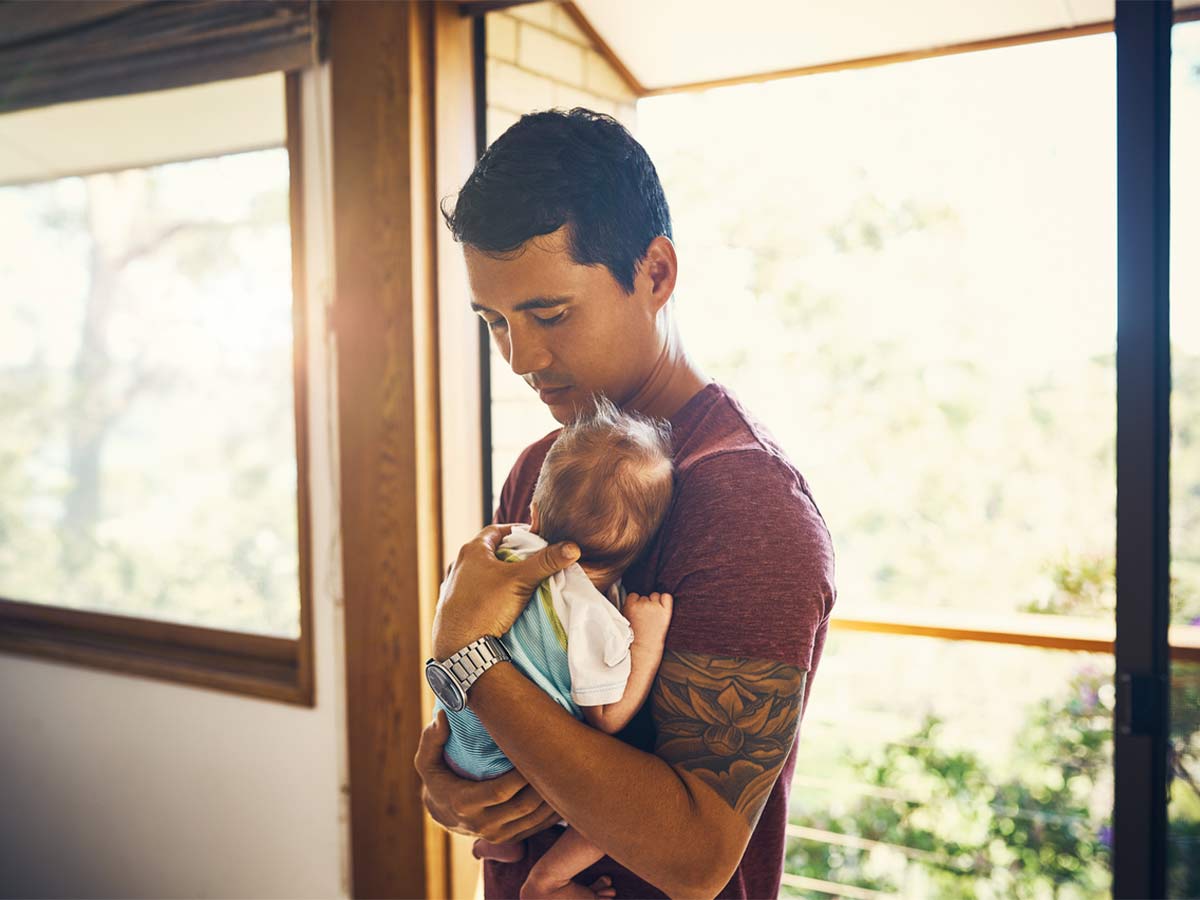Damaging Assumptions about New Dads
“Dads don’t know what they are doing with babies.”
“Dads need to check decisions with the ‘lead’ parent.”
“Dads don’t have good instincts.”
Do these assumptions about new dads sound familiar to you? Unfortunately, these societal beliefs are common but can reinforce new fathers’ negative feelings, which then further contribute to paternal mental health challenges.
Supporting Your Partner’s Role as a Dad
As a co-parent, you can help to support a new father by:
✔️ Giving them chances to become involved, even if it’s not in the way that you’d like
✔️ Remembering that dads need to find their own way of relating to their baby; you can help support this bonding by giving more leeway
✔️ Remembering that your roles may be different (same-sex or heterosexual)
✔️ Playing to each other’s parenting strengths
✔️Allowing for imperfection and fumbling; many dads learn by making mistakes, not by you telling them!
Paternal Depression is linked to Maternal Depression
It is worth mentioning that one of the key predictors of paternal depression is maternal depression. When the mother is depressed, 50% of fathers experience clinical depression (Paulson & Bazemore, 2010).
Regardless of gender or sex, when one parent is experiencing a mental health challenge, the other is going to be impacted, especially in the early days of new parenthood, when you are still navigating the change in your roles and your new life!
The difficulty is the snowball effect, for example in heterosexual couples:
maternal depression ➡️ paternal depression ➡️ disconnection or absence ➡️ increased pressure or feelings of rejection/isolation ➡️ further maternal depression ➡️ further paternal depression…
In many cases, it is a chicken-and-egg debate, but the message is clear:
Perinatal Mood & Anxiety Disorders (PMADs) can Impact Both Mothers and Fathers
Both parents can be impacted by PMADS, regardless of who the ‘patient’ is, so we need to see prevention and treatment as a joint effort.
Possible treatments may include:
- individual counselling for one or both partners
- couples counselling to clarify the division of labour and other pressure points
- learning more effective communication skills
- medication consideration through a primary care provider
- peer supports, informal mom/dad groups
- complimentary therapies such as exercise, yoga, massage etc. that aim to enhance self-care and reduce stress
- stress reduction or mindfulness apps
- new parent groups
A Note on Single-Parent Families
Note: We acknowledge that this information is directed at two-parent families and that this is not always the case. Single parents of course have a whole slew of other complications and challenges. It can be demanding and overwhelming taking care of a newborn alone. Therefore, it is especially crucial for a single parent to have good self-care and build a strong support system. With good preparation, you too can embrace and enjoy the journey of parenthood, even with its special challenges.
If you would like to know more about Perinatal Mood and Anxiety Disorders (PMADs), we encourage you to read our article here.
Supporting new dads through counselling
We hope that this information has helped you to shed some light on your own thoughts, feelings, and behaviours, and allowed you to gain valuable insight. This is a first step towards change. But if you are ready to dive deeper and focus on making significant changes in your life, you may benefit from working through this with one of our counsellors. To book a session, click here.
If you’re not sure what kind of support you need, we’ll be happy to match you with a counsellor who can help.




